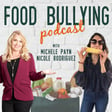
The unintended consequence of food elitism: Episode 35
Fancy shoes and cheap prices. Chicken breasts and hormone myths. Food snobbery and the hungry. Healthy food and fat. Cheap food and sustainability. “It’s really easy for us to look at a product that has a fancy name or claim and assign higher perceived value to it."
Dr. Jayson Lusk is a distinguished professor and head of the Agricultural Economics Department at Purdue University. He studies what we eat and why we eat it, and the economics around food decisions. In today’s Food Bullying podcast, he offers insight on how claims, policies, and misperceptions can cost us all.
Key points
- How labels change how we feel about a product and how we are willing to pay more for perceived value.
- What does an agricultural economist do? Food prices, farm production, international trade, supply and demand.
- We want to buy more than we can afford: what perceptions and factors explain what is on our plate
- Large chicken breasts, animal welfare and how prices are affected by regulations put in place.
- Slow growth or heritage breed chicken grow a lot slower, have negative environmental and cost consequences.
- The unintended consequence of food choices: how the things we can afford change as our income grows.
- The people that bear the brunt of food price policies are the lowest income consumers. Shopping with your wallet will help support lower prices for everybody.
- Consumers say they will do one thing and then shop entirely differently. If you make people make trade-offs you can little closer to the truth in studies with consumer groups.
- Perceptions around healthy food. FDA regulates the healthy claim, which has a lot to do with fat content. Does healthy or natural really mean what you think it does?
- How the brain processes information about food and controversial food issues, such as cloned cows and cage-free eggs. Brain activation can predict what people are likely to choose in buying food. Decision making around food is not just emotional or rational – it’s both.
- Tips to overcome food bullying: price is a perfectly legitimate guide in shopping for food, pay attention to the sources of information, and don’t fear your food.
Fabulous quotes
“It’s really easy for us to look at a product that has a fancy name or claim and assign higher perceived value to it. “
“Let information empower and don’t be fearful of your food.”
“It’s illegal to use growth hormones in broiler chickens.”
“As our incomes grow, we see people eating differently than us. There’s maybe a little bit of snobbery…”
“The motivation for some of these new policies are ‘people aren’t eating correctly or right.’ We forget that people have a lower income have an entirely different set of preferences.”
“It’s O.K. to use price as a guide to shopping for food.”
“By in large, info coming out from FDA, USDA and PhD scientists is more trustworthy.”
“There’s a lot of guilt that gets tied up in what we eat. Let information empower you to not fear your food.”
Links
- Blog: JaysonLusk.com
- Food Bullying: How to Avoid Buying BS by Michele Payn
- Embrace Your Heart with Eliz Greene
- Food Bullying Podcast’s Facebook page



















